The Digital CCG Bubble Hasn't Burst Yet, And Might Not For A While
In recent years, we've been mobbed by MOBAs and smothered with shooters. But since the success of Hearthstone, digital collectible card games have been sprouting up like boils on a Leper Gnome.
Over on Gamasutra, they ask if the digital CCG boom is a bubble – in other words, are online CCGs still a growing market or one that's going to collapse? Is there an end in sight to the current explosion of these types of games, or will they just keep coming? Can we use the historical precedent of the physical CCG booms that came in the wake of Magic: The Gathering and Pokémon in the 1990s to predict how the digital marketplace will perform?
The right games at the right time
I worked in the CCG industry for the better part of 15 years, both for companies that made the games and for media outlets that covered them. I agree with several of the sentiments expressed in the article, such as Magic's general unsuitability for a digital medium and that the market's current saturation means we're unlikely to see another breakout hit on par with Hearthstone.
Talking about Magic, Michael Pachter asks “why not before?” since Magic did have some digital presence but it never was strong enough to usher in a wave of online imitators. Another way you could phrase this question is, “Why did Hearthstone, or its equivalent, come out in 2014 and not, say, 2008, or even earlier?”
I think the general acceptance of free-to-play gaming and microtransactions is a big reason. On the face of it, CCGs are the original “microtransaction-based games.” For over 20 years, you've been able to buy randomized lots of game-related items for a small price for physical CCGs, which sounds an awful lot like loot boxes in online games.
A decade ago, though, selling games piecemeal like that was practically unheard of in the digital realm. These days, however, it's... well, not loved, exactly, but more accepted overall and less likely to raise eyebrows.
Also, as we now know, many developers these days are shying away from huge, all-inclusive (and very expensive) online ventures like MMORPGs and developing smaller, more self-contained games. While Hearthstone's success is still an admirable goal to strive for, people tend to have more realistic expectations, not to mention budgets. With their rather minimal needs and relatively simple gameplay – which helps them spread to mobile devices, which are as ubiquitous as ever this decade – CCGs are perfectly suited for this new paradigm in digital gaming.
Making comparisons
That said, the current “explosion” of digital CCGs doesn't hold a candle to what happened shortly after Magic's launch in 1993. In 1995, 38 entirely new CCGs were released. That's three new CCGs every month. A similar mini-explosion followed Pokémon's launch in 1999.
Not surprisingly, many of these games died off almost as soon as they came out. There were a lot of games, and a lot of they were really awful (like this and this and especially this), but some were decent enough games that just failed to find or hold an audience.
The difference between then and now – and the big thing that I think makes low-end digital CCGs viable where their physical counterparts weren't – is the nature of digital gaming itself. With a physical CCG, your players have to be local. If you have a small game with six players in your card shop, that's fine. But if one of those players moves, another loses interest in the game, and another just doesn't have time any more, you're in trouble. Three players can't do even a small tournament and will probably get bored of playing against each other all the time.
Here's another way to look at it. If you're the developer of a CCG and have 10,000 “pockets” of players, six per town across the country, you're in a fragile spot. Each time one of those pockets loses half its players, you've effectively lost all of them. You don't go from 60,000 to 30,000 players, you go from 60,000 to zero. And new players aren't likely to find the game on their own, if they have nobody to play with.
With a digital game, though, that's not the case. People will drift away from the game, and new players will learn about your game and become interested, but since nobody's bound to a single location, you can still find people to play with. And if you're the one who moves to a different city, you don't have to worry about leaving your old gaming group behind and finding a new group to play with. The Internet is everywhere.
I think this makes it easier for digital CCGs – and, to some extent, nearly any online game – to keep the lights on even with a modestly sized audience. That's probably why we feel like the market is oversaturated but relatively few games shut down entirely, thus preventing the collapse of the genre. There's room for games like Duelyst, Star Crusade, and Chronicle: RuneScape Legends alongside behemoths like Hearthstone and... well, Hearthstone. It remains to be seen if games like Gwent and The Elder Scrolls: Legends can cash in on their name recognition. I don't think there's a “Hearthstone killer” lurking, but there's plenty of room for #2.
As for the original question posed on Gamasutra: I don't think digital CCGs are a “bubble” that's going to “burst” any more than I feel that way about MOBAs or shooters. I think we might see slightly fewer of those types of games, as the marketplace becomes more crowded, with more modest profit projections than might have been dreamed of a couple years ago, but an outright collapse isn't... well, in the cards.
Related Articles
About the Author

Jason Winter is a veteran gaming journalist, he brings a wide range of experience to MMOBomb, including two years with Beckett Media where he served as the editor of the leading gaming magazine Massive Online Gamer. He has also written professionally for several gaming websites.
More Stories by Jason WinterRead Next
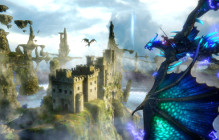
For a long time, I've railed against traditional quest-and-level MMOs – “WoW clones,” if you will.
You May Enjoy

Just in time for the Guilded Carrot Day festivities.

You can run but you can’t hide.

It’s also a good time to get the Legacy of Phrecia cosmetic bundles if you missed them before.

The update also kicks off the Lucky Mystic Portal event and revamps Amitoi Expeditions.
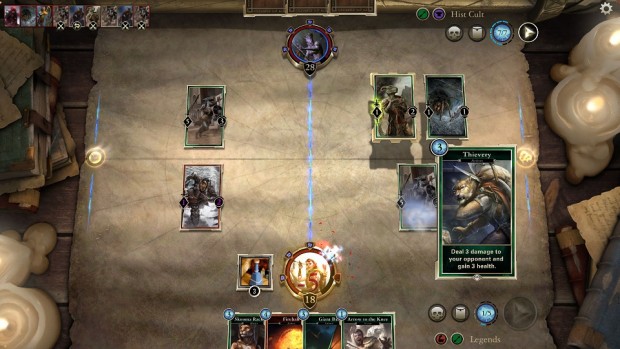
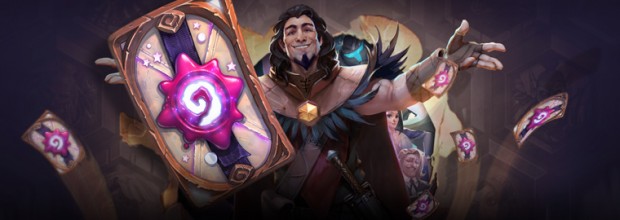
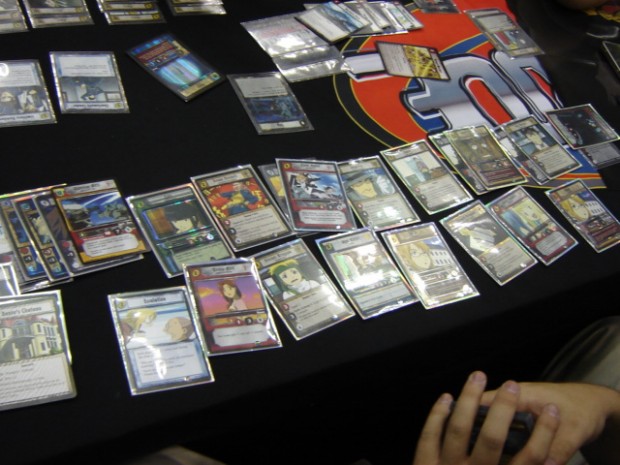
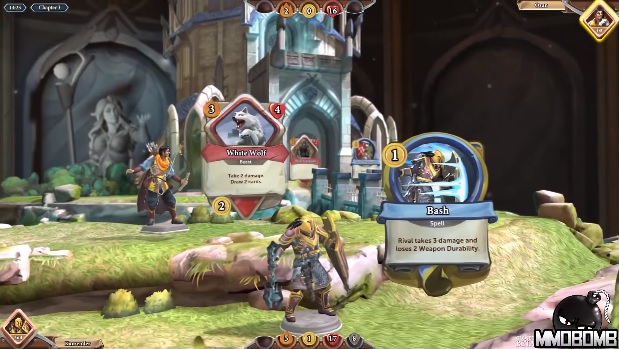
Saying that heartstone was the first online card game is like the kids saying WOW was the first mmo... Facepalm
But holistically, these games copied the structure of Hearthstone without questioning whether or not its structure is necessarily good or trying to carve a niche by changing the overall game structure.
What I'm saying is that Hearthstone has defined the genre to the point that every CCG dev assumes they MUST have an arena style draft system, and the core gameplay of a CCG must be a 1v1 ranked ladder and power progression is entirely decided by how much you're willing to grind and/or spend.
Instead of trying to innovate in the many wide possibilities of the genre such as, co-operative gameplay, asymmetrical gameplay, PvE dungeon crawl-type campaigns etc, devs choose to go the safe route and believe that a few extra keyword/mechanical bells and whistles is enough to tide the bored Hearthstone player.
For example, many MMORPGs: At the surface they look unique and different: "oh look, we have X, Y, Z, therefore we're not like WoW". But ultimately the game can be boiled down into: pick a class, do a hundred brainless quests by yourself, reach 'end game' which has nothing to do with your leveling experience, then climb the gear progression ladder. At the core, those games are "WoW clones", because when you boil it down to its essence, the game is structured just like Blizzard's.